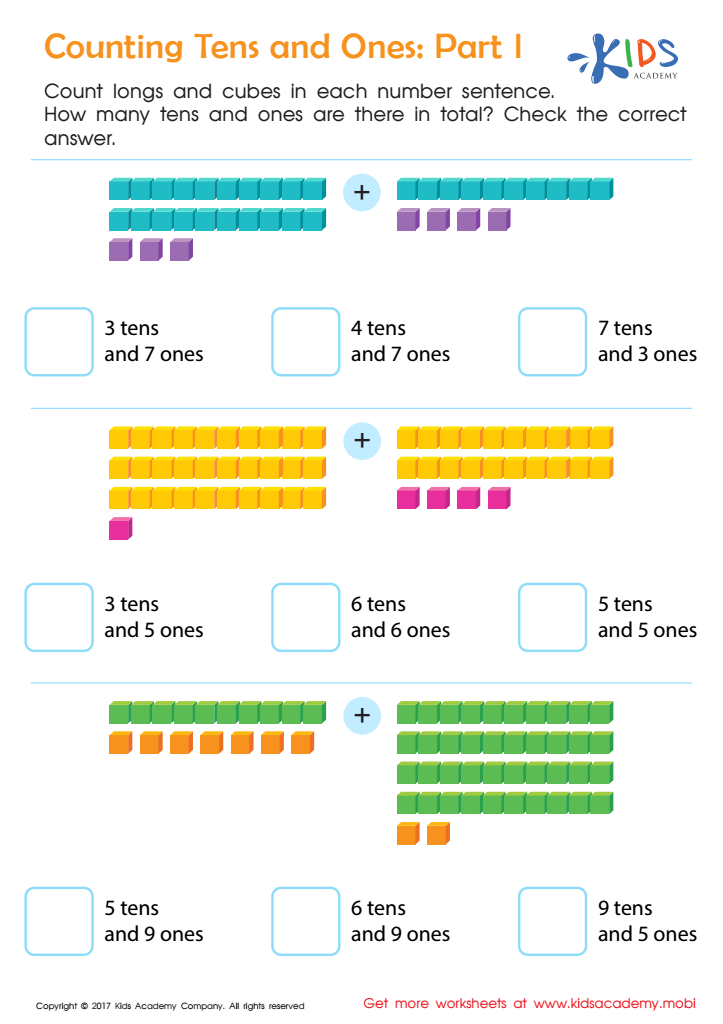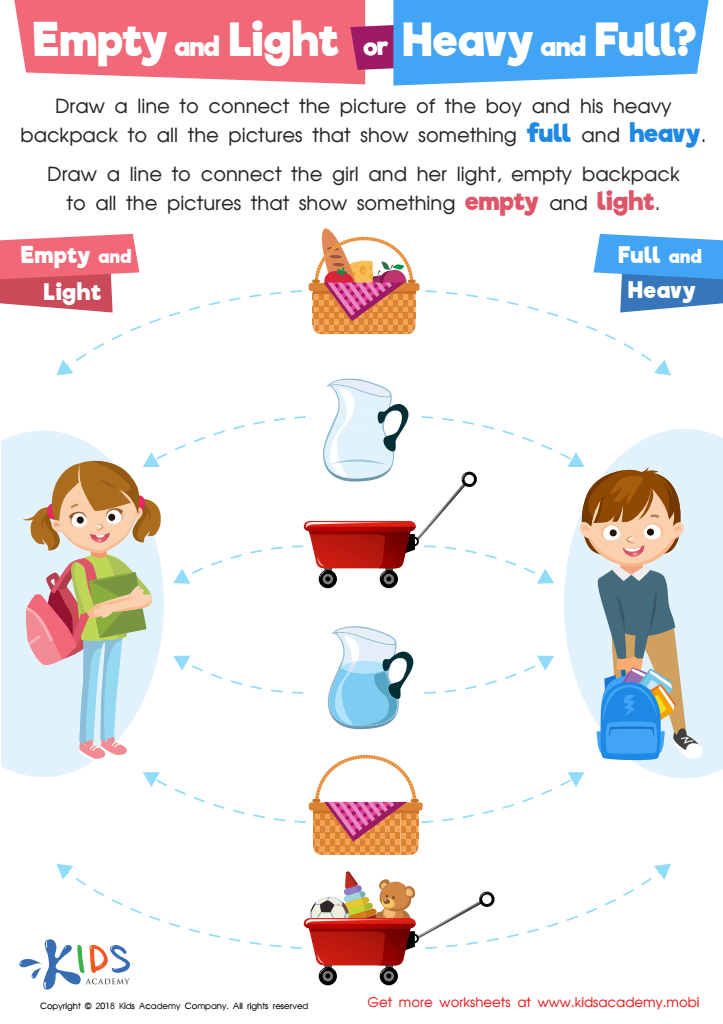Visual Perception Skills Easy Math Worksheets for Ages 3-8
3 filtered results
-
From - To
Enhance your child's learning journey with our "Visual Perception Skills Easy Math Worksheets" designed for ages 3-8. These engaging worksheets aim to develop vital visual discrimination, spatial awareness, and pattern recognition skills through fun, interactive math activities. Perfect for homeschoolers and parents alike, our resources make practicing math enjoyable while strengthening visual perception essential for early learning. Each worksheet is crafted to provide a comprehensive approach to math concepts in an accessible format, ensuring young learners build confidence and competence in their abilities. Download now and watch your little ones thrive as they explore the world of numbers through visual perception!


Counting Tens and Ones: Part 1 Worksheet


Empty and Light or Heavy and Full? Worksheet


Counting Seedlings Worksheet
Parents and teachers should prioritize visual perception skills in early math for children ages 3-8 because these foundational skills significantly influence a child's overall cognitive development and academic success. Visual perception involves the ability to interpret and make sense of visual stimuli, crucial for understanding mathematical concepts such as shapes, patterns, and spatial relationships.
Developing strong visual perception skills enables children to recognize numbers and shapes quickly, enhancing their counting and problem-solving abilities. This early exposure to visual math experiences can foster positive attitudes toward math and increase confidence, laying the groundwork for more complex mathematical thinking in later years.
Moreover, activities that highlight visual perception, such as sorting, matching, and identifying patterns, bolster critical thinking skills and promote fine motor development. These activities engage children in hands-on learning, making math enjoyable and relatable.
By nurturing visual perception skills, parents and teachers equip children with essential tools to tackle everyday tasks, from organizing objects to understanding more advanced academic subjects. Investing time in skill-building at this early stage can lead to long-term benefits, ensuring that children are well-prepared to meet future educational challenges and equipped with the confidence to excel in mathematics.

 Assign to My Students
Assign to My Students
















